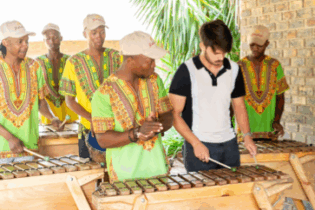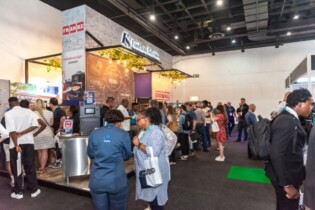Earth Hour will be marked across the world at 8:30pm on 25 March 2017 with the switching-off of lights to create awareness about climate change and inspire people to take action for the planet. Premier Hotels & Resorts will be using this opportunity to educate guests about how they can help minimise their impact on the environment by making small adjustments to their electricity consumption behaviour during their visit.
The effects of climate change are especially being felt in the City of Cape Town. As of the 6th of March 2017, the City of Cape Town had approximately 113 days of usable water left. This situation led to Mayor Patricia de Lille declaring the City a disaster area. With South Africa experiencing the lowest levels of rainfall in over a century, other parts of the country such as Mpumalanga, Limpopo and KwaZulu-Natal were declared drought-disaster areas during 2016. The problem has been so severe that, in some cases, drinking water has had to be transported to certain communities.
Managing Director of Premier Hotels & Resorts, Samuel Nassimov says: “It is in times like these that the immediacy of climate change and the need for ‘green’ initiatives become all the more real. With 75% of hotels’ environmental impact being directly related to excessive consumption, we have committed to transforming ourselves and, in turn the environment, by adopting a more eco-friendly approach to the way we do things.”
In terms of its water conservation efforts, some properties in the hotel chain, such as Premier Hotel Midrand and Premier Hotel O.R. Tambo, are solely reliant on borehole water. Others like Mpongo Private Game Reserve, Premier Hotel Knysna – The Moorings and Premier Hotel Sani Pass have begun implementing grey water reclamation and recycling solutions.
Nassimov shares: “Boreholes, which make use of groundwater, can ease the strain on surface water resources such as dams. In fact, South Africa has roughly the same amount of groundwater as it does surface water, but the former constitutes only 13% of the country’s total water consumption.”
He adds: “Greywater, such as bath, shower, bathroom sink and washing machine water, can be collected and pumped into irrigation systems for gardens. This ensures that the animals in our game reserve benefit from waste water being directed away from the rivers where they drink and bathe. In addition, our visitors can continue to enjoy the lush grounds which they have come to expect from our properties.”
Other water saving initiatives that have been implemented by Premier Hotels & Resorts, include the provision of full and half flush options on all toilets as well as the installation of low-flow showerheads and tap controls.
The Group’s green approach extends to its general housekeeping, conferencing and suppliers as well as to its food and beverage services. For instance, the maintenance department performs regular checks on water and energy use. Furthermore, a heat exchange system is employed to warm the central water distribution system and energy saving light bulbs are utilised throughout the hotels.
“While we are trying to provide a luxurious stay for our patrons, we partner with them in order to deliver on our commitment of making a difference. In doing so, we reinforce that we all need to play our part in addressing the challenges that our country and world currently face,” concludes Nassimov.
For more information, visit https://www.premierhotels.co.za.








